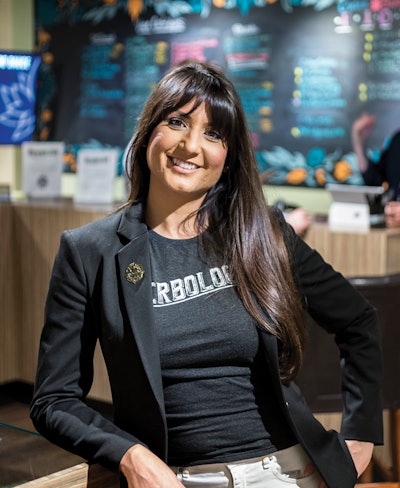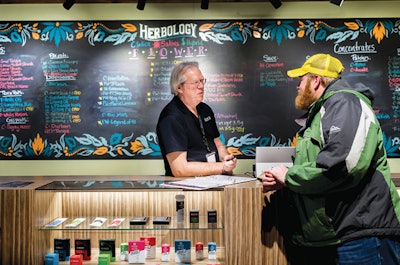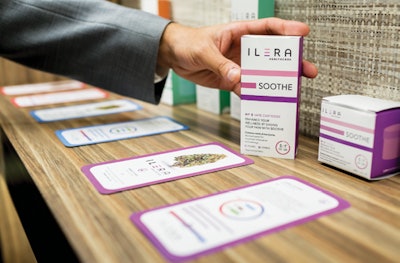

Editor’s note: Grassroots Cannabis is Herbology’s parent company. Grassroots Cannabis is a vertically integrated company with operations in Illinois, Maryland, Nevada, Ohio, Pennsylvania and North Dakota. Here, Grassroots Cannabis Chief Communications Officer is speaking on behalf of Grassroots Cannabis and Herbology-Gettysburg, one of the locations of Grassroots-owned dispensaries in Pennsylvania and Vermont.
Brian MacIver: What has been your biggest recurring challenge?
Mahja Sulemanjee: We have found a successful model that we know works. ... Scaling this model into new markets to replicate the same results has been a challenge.
BM: How do you address/work around that challenge?
MS: We have found the most success in working closely with government officials to be transparent and keep open lines of communication with them. Our team is also constantly educating itself to keep up-to-date on new regulations and laws.
BM: What is the biggest advantage to vertical integration?
MS: The biggest advantage to vertical integration is the ability to control the final product and ensure consumers [receive] the highest-quality cannabis. Additionally, because we are on both the cultivation and retail sides, we get perspective on what consumers are asking most often and provide them with what they want.
BM: What is the biggest drawback to vertical integration?
MS: Vertical integration is similar to running multiple businesses simultaneously. Cultivation operations and retail dispensaries are serving two separate populations and have separate processes to keep everything running smoothly.

BM: How do you mitigate that drawback?
MS: Communication between leaders is key, as we keep each other up-to-date on what is going on in each part of the company. We have also developed an impressive team of compliance and regulatory experts to help us expand our footprint in highly regulated, limited-license markets.
BM: What has been your biggest achievement?
MS: Grassroots Cannabis is constantly expanding, and we are ... proud to announce that we will be entering even more markets [soon]. Our biggest achievement has been becoming one of the nation’s largest multi-state cannabis operators without losing sight of our consumer-centric focus.
“Legislation such as Illinois’ Alternative to Opioids Act are shedding light on the benefits of medical cannabis as an alternative to opioids.” Mahja Sulemanjee, Chief Communications Officer, Grassroots Cannabis
BM: What has been your biggest unanticipated expense?
MS: Taking the time to thoroughly research which markets our operations are most needed and further looking into the exact location, constructing and building out each operation has been a large, unexpected expense for us.
BM: How do you choose cultivation partners?
MS: We thoroughly vet our cultivation partners to ensure they have integrity and share our company’s passion for helping consumers. ... We stay away from companies with ... frequent price fluctuations, inconsistency in products and a corporate attitude that does not align with ours. Additionally, we prioritize CBD strains, vegan products, topicals, sugar-free options and low-dosage products to provide a range of options for all needs.
BM: What customer trend(s) are you seeing in your store(s)?
MS: One customer trend we are seeing ... is older patients that have been referred by doctors to use cannabis as an alternative to dangerous prescriptions, such as opioids. We are seeing a shift in overall opinions of cannabis as more folks are interested in learning how cannabis products may improve wellbeing.

BM: What is your approach to budtender training?
MS: We prioritize teaching our budtenders to treat each consumer with an individualized approach by asking personalized questions and keeping patient logs. ... The customer journey at Herbology is crafted around ease for consumers. We encourage a comfortable environment that provokes education through books in our waiting areas and lobbies, plus education and outreach specialists dedicated to each Herbology dispensary.
BM: What worries you most about the cannabis market?
MS: The fast growth is the most worrisome because of the immense amount of talent and resources that goes into that growth in order to continue providing the highest quality products while expanding rapidly.

BM: What makes you excited/hopeful about the cannabis market?
MS: In 2018, there was a trend in the U.S. toward the legalization of both adult-use and medical cannabis. There are now 10 states with adult-use cannabis programs, including Michigan, where we have operations.
BM: What keeps you up at night?
MS: It troubles me to know there are still many people unable to get the cannabis products they need; and at the same time our country is facing an opioid epidemic. We know that states with medical cannabis laws report an average reduction of 25 percent in opioid overdose deaths.

BM: What helps you sleep at night?
MS: I am hopeful as the threat of opioids on American lives is finally being realized. Legislation such as Illinois’ Alternative to Opioids Act are shedding light on the benefits of medical cannabis as an alternative to opioids.

























